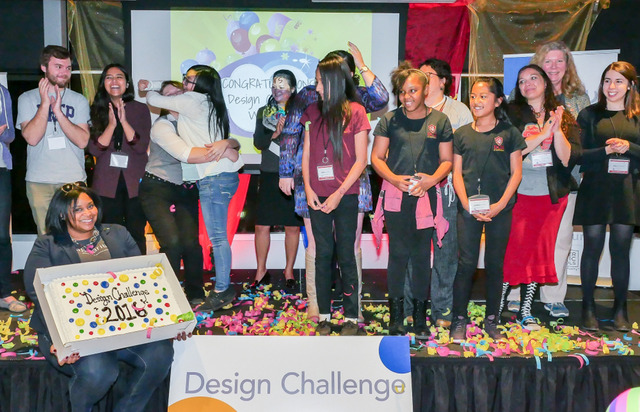The Local newsletter is your free, daily guide to life in Colorado. For locals, by locals.
Remember when you’d get home from school, sit around the kitchen table, and complain to your parents about school? “Why don’t they just do this?” or “Why does this always happen?” are common questions in public education. With the Imaginarium Design Challenge, students, parents, teachers and members of the community can bring their ideas to enhance Denver Public Schools to the table.
In its third year, the Imaginarium received more than 50 submissions. The ideas were whittled down to 18 qualifiers who worked to create and present pitches. Eight finalists were selected, and finally six winners were announced last Thursday, each receiving up to $10,000 to implement their projects in the 2017 school year. A group of judges made the selections based on the degree of innovation and problem solving, the ease of integration into Denver Public Schools, the feasibility, and the alignment with the Denver 2020 plan. It’s like Shark Tank, but without Kevin O’Leary (thank goodness). Here are three of the ideas that won this year’s challenge:

ASSET: Tessa Zimmerman is founder of nonprofit organization ASSET Education, which uses a social and emotional curriculum to ease anxiety and provide support. Currently, the program is implemented at Denver School of Science and Technology, Green Valley Ranch Campus. Zimmerman’s goal is to introduce this to more classrooms. Oh, and did we mention that she’s 20 years old?
Banana Pudding: This innovative project was also designed to alleviate stress. Two high school students pitched the idea of “Serenity Spaces,” which can be built in empty classrooms, classroom corners, and even mobile cubbies as a refuge from pop quizzes, low grades, turbulent home lives, and too much homework. (Fun fact: The project’s name, Banana Pudding, comes from a day in the classroom when things became heated and chaos threatened to break loose—until a student randomly shouted “banana pudding,” and all seemed to go calm.)
Mobile Maker Stations: Remember those carts that toted projectors or old-school TVs from classroom to classroom? A Mobile Maker Station is still a cart, but it offers students innovative project tools. No, not markers or scissors—these tools include a 3D printer, a laser engraver, a circuit building station, and more. Currently, not all classrooms have access to these nifty tools, so these carts can be “rented out” for an allotted amount of time by schools across the district.
The hope is to implement these programs and ideas into Denver Public Schools. Last year, through the design challenge, a smartphone app called Montclair Post was developed at Montclair School of Academics and Enrichment. The school has an average 50-plus languages mingling together, which makes communication with parents difficult. This app was designed to translate in real-time, breaking that barrier. Now the app is being rolled out in other schools.
Until next year’s challenge, make note of those kitchen table complaints (from yourself and your little ones) and get ready to pitch ’em.








